GĐXH - Oysters have high water and fiber content, helping to create a feeling of fullness for a long time, making them an ideal food to support effective weight loss, thereby reducing the risk of type 2 diabetes.
Kohlrabi is a familiar vegetable in the meals of many Vietnamese families. This tuber is also known by other names such as Phiet lan, gioi lan or gia lien, has many uses in traditional medicine, including supporting the treatment of problems such as: Difficulty urinating, cloudy urine, sinusitis and gastrointestinal bleeding...
According to data from the United States Department of Agriculture (USDA), every 100g of kohlrabi contains about 27 calories, 6.2g of carbohydrates, 1.7g of protein, and 3.6g of fiber. In addition, kohlrabi is also rich in micronutrients such as: 350mg of potassium, 62mg of vitamin C, 24mg of calcium, 46mg of phosphorus, 19mg of magnesium, 20mg of sodium, 22µg of beta-carotene, and 16µg of folate.
In particular, this vegetable is a source of vitamin C, an antioxidant that helps protect the body from free radical damage and plays a role in wound healing, collagen synthesis, iron absorption and immune health. The fiber in kohlrabi helps support intestinal health and blood sugar management. Therefore, eating kohlrabi every day can support good health.
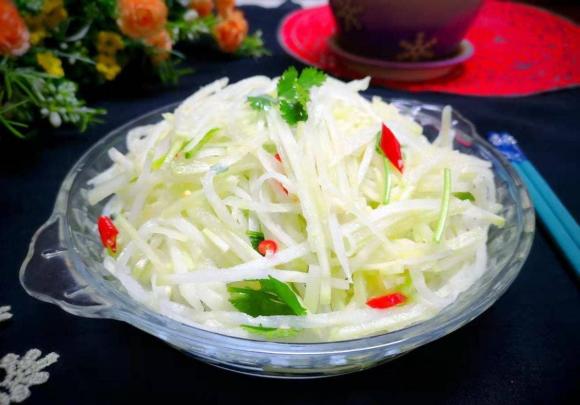
Illustration photo
Surprising health benefits of kohlrabi
Reduce the risk of diabetes
Kohlrabi is low in calories and high in fiber. Fiber takes time to break down and slows down digestion, helping to reduce feelings of hunger.
With high water and fiber content, kohlrabi helps create a feeling of fullness for a long time, making it an ideal food to support effective weight loss, thereby reducing the risk of type 2 diabetes .
Helps improve blood pressure and cardiovascular health
One bowl of kohlrabi provides more potassium than a medium banana, which is beneficial for blood pressure control. Potassium functions as a vasodilator, reducing the tension in blood vessels and arteries.
Another study found that kohlrabi has higher levels of anthocyanins (antioxidants), especially in the purple variety. A diet rich in anthocyanins may reduce the risk of heart attack and hardening of the arteries.
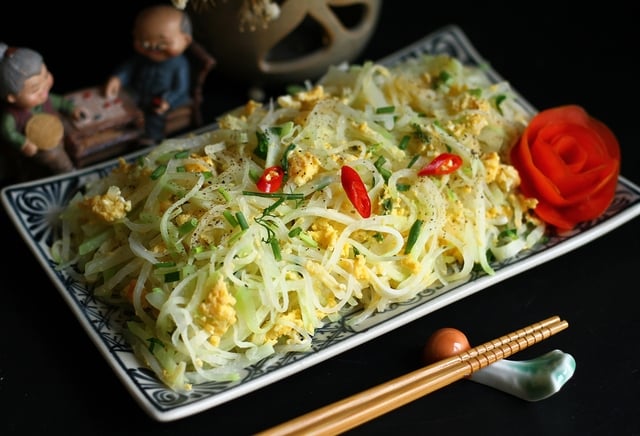
Illustration photo
Boost immunity
Kohlrabi is rich in vitamin C, which helps boost immunity. The changing seasons can easily cause the body to contract certain diseases such as respiratory infections, allergies, flu, fever, etc. Therefore, adding kohlrabi to your daily diet will increase immunity and prevent disease.
Skin care
Adequate intake of vitamin C will ensure that the body produces enough cytokines and lymphocytes to fight infections. Furthermore, vitamin C has many beneficial effects on the skin such as enhancing collagen biosynthesis, promoting skin hydration and protecting the skin against ultraviolet radiation.
Helps strengthen bones
Calcium is a mineral that makes bones strong and hard. Magnesium increases bone density, making bones strong and reducing the risk of fractures or osteoporosis. The high calcium and magnesium content in kohlrabi helps to strengthen bones.
Limitations to know when eating kohlrabi
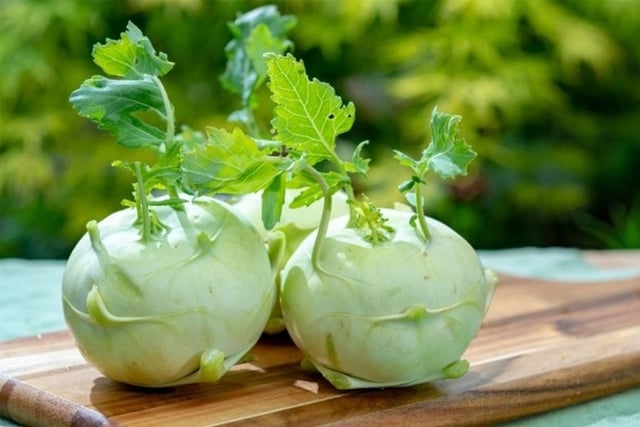
Illustration photo
Do not eat raw kohlrabi
Kohlrabi is a food that can be prepared in many ways. However, if eaten raw, the content of nutrients will be higher, but can cause stomach pain for some people with indigestion. Even people with stomach pain, children should not be given raw kohlrabi salad or eat raw directly.
Do not eat when suffering from thyroid disease
In addition, kohlrabi may contain goitrogens, plant compounds commonly found in cruciferous vegetables such as broccoli, cauliflower, etc., which can cause thyroid swelling. Therefore, people with thyroid dysfunction should limit the use of kohlrabi.
Don't eat too much kohlrabi.
Oriental medicine doctors advise you not to eat too much kohlrabi because kohlrabi can detoxify and is a diuretic, so eating too much will cause the body to lose blood and energy.
Source: https://giadinh.suckhoedoisong.vn/loai-rau-mua-dong-re-tien-ban-day-cho-nguoi-viet-nen-an-thuong-xuyen-de-phong-benh-tieu-duong-cao-huet-ap-172250109155353304.htm







![[Photo] General Secretary To Lam receives the Director of the Academy of Public Administration and National Economy under the President of the Russian Federation](/_next/image?url=https%3A%2F%2Fvphoto.vietnam.vn%2Fthumb%2F1200x675%2Fvietnam%2Fresource%2FIMAGE%2F2025%2F12%2F08%2F1765200203892_a1-bnd-0933-4198-jpg.webp&w=3840&q=75)
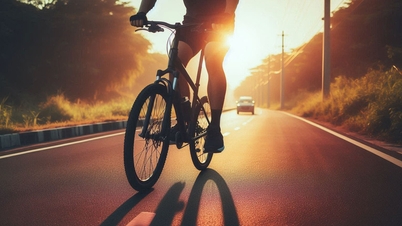








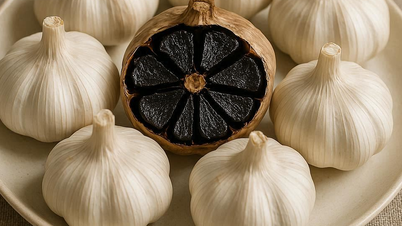
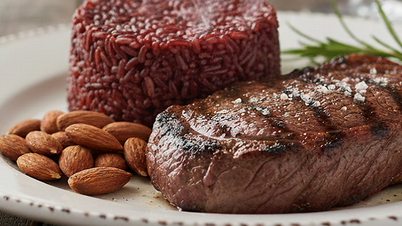
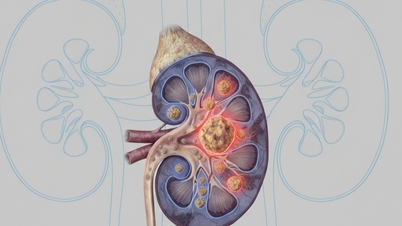



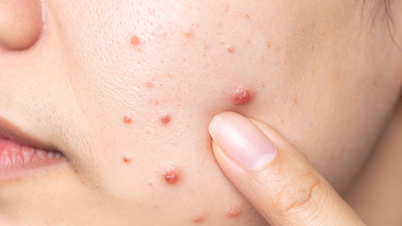








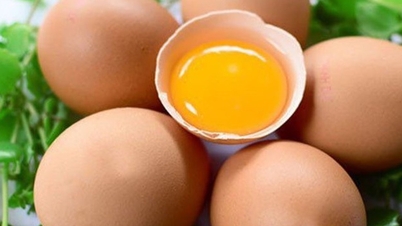
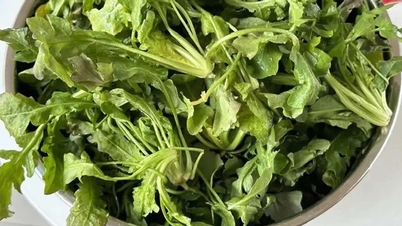













































































Comment (0)